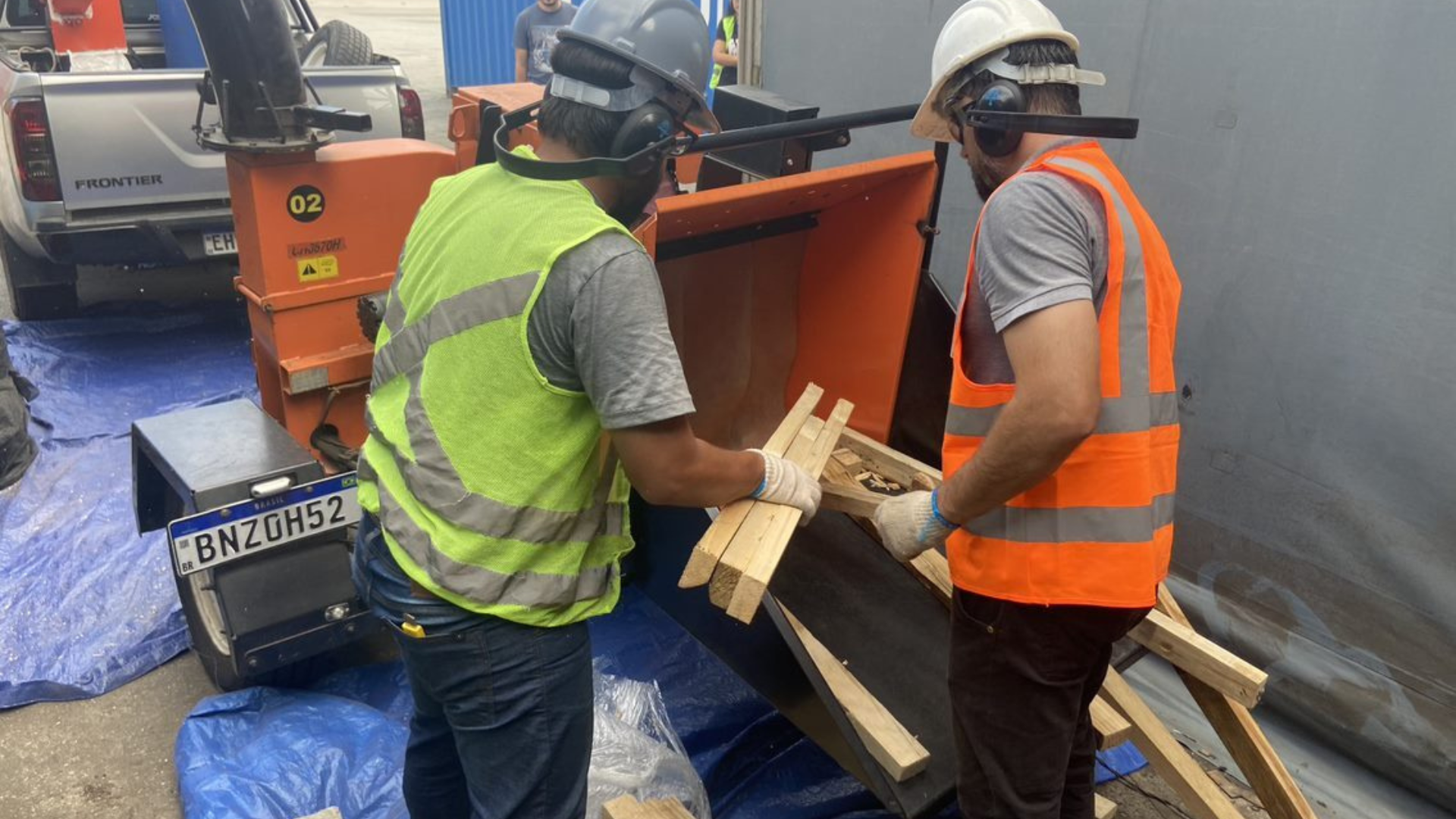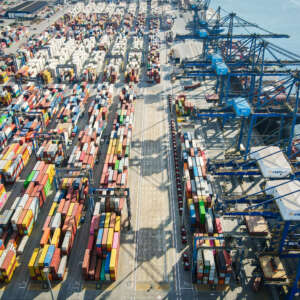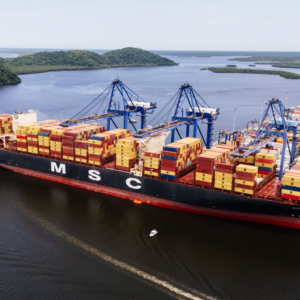Procedure drastically reduces cargo clearance time for importers
In January 2024, the company that manages the Paranaguá Container Terminal (TCP) started offering the service of destroying condemned wood. The process brings greater agility to forwarders and importers, radically reducing the time it takes to release cargo held up for using uncertified wood supports and packaging with the seal of the International Plant Protection Convention (IPPC).
This seal, which is verified during the cargo inspection carried out by auditors from the Ministry of Agriculture, Livestock and Supply (MAPA), certifies that the wood has undergone appropriate phytosanitary treatment, preventing the environmental and economic risk arising from the spread of pests from other countries.
“The terminal is always working to offer new solutions, and integrating wood destruction into the portfolio of services results in efficiency gains for our customers, who can now regularize the situation of their cargo in a faster and less bureaucratic way,” says TCP’s commercial, logistics and customer service manager, Giovanni Guidolim.
The destruction procedure, carried out in a reserved area of the terminal by the company Paddo Ambiental, is done with mobile equipment approved by MAPA and consists of crushing pallets, boxes and wooden supports, generating a residue with a thickness of less than 6 millimeters. Diego Toffoli, socio-director of the company, points out that “the service provided by TCP is an important differentiator, since some ports and terminals don’t have companies registered to carry out this operation”.
Without the wood destruction service, importers would have to arrange for the re-export of condemned packaging and supports to the product’s country of origin or request a court order allowing the material to be removed from the primary zone to be incinerated by a company authorized by MAPA. In addition to being costly, both processes could take weeks or even months, during which time the cargo would be held up.
“This is great news for those involved in foreign trade who operate through TCP, especially for freight forwarders. The destruction of the wood makes it possible for all the security measures required by the customs authorities to be carried out in the shortest possible time,” says Flavio Demetrio da Silva, president of the Customs Brokers Union of the states of Paraná and Santa Catarina.
Flavio also points out that the offer of this service has met a demand that the category had brought up in meetings with the Terminal team. “The attention given by TCP to users is reflected in the availability of this new feature, which represents a major difference compared to other terminals in the southern region,” he concludes.
TCP inaugurates Waste Center
With the aim of sending 100% of contaminated waste for recycling, treatment or reuse, TCP completed its newest Waste Center in January. With an area of 120 square meters and the capacity to store 42 IBCs (Intermediate Bulk Containers), the packaging structure is prepared to separate each type of waste, be it liquid, solid, chemical, contaminating, hazardous, incompatible, among others.
As well as protecting the health of employees, the project meets the terminal’s goals of preserving the ecosystem around its area of operations, taking care of the environment and the well-being of nearby communities.



